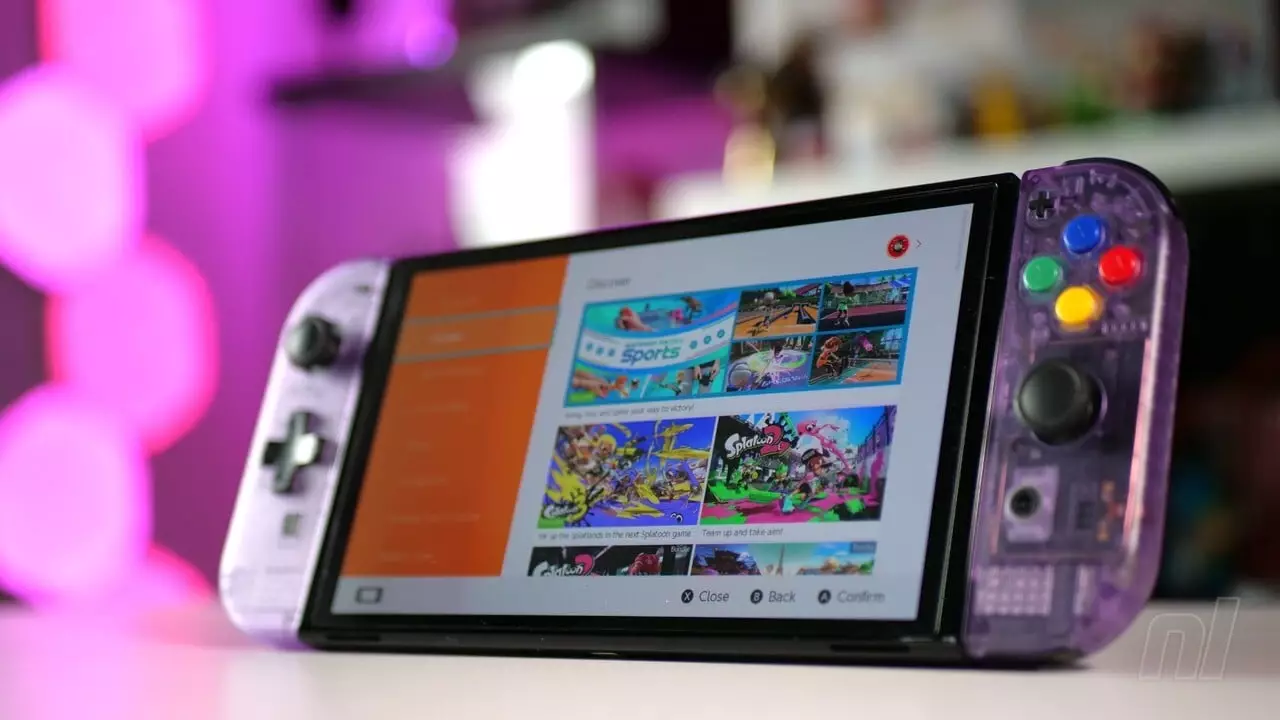The Nintendo Switch eShop has garnered a reputation, both among gamers and developers, for being a problematic platform for purchasing and publishing games alike. As of 2025, the storefront is widely criticized for its slow performance, messy interface, and an overwhelming number of poorly crafted games. However, the perspective of developers—the individuals who strive to get their games onto this platform—offers deeper insights into the complications that exist on both ends of the consumer and supplier relationship.
With developers expressing their frustrations over the system, it becomes evident that the eShop poses unique obstacles not only for players but also for those looking to market their creations. A recent feature from IGN delves into this issue, revealing that many developers feel exasperated by the state of Nintendo’s digital storefront. An anonymous game creator commented on the ease with which scam games can infiltrate the eShop. The ability for a developer to publish games with misleading descriptions raises serious ethical concerns about the accountability of both Nintendo and the developers themselves. The comment that “once I’m in the door, I could make ‘Fart Fart Boobie Fart: The Game’” is a sobering reflection of the potentially chaotic environment that can develop when quality control mechanisms are either absent or ineffective.
The disparity in policing the eShop has resulted in a system where developers are often held accountable post-factum rather than preemptively. The phrase “forgiveness instead of permission” embodies a troublesome approach to the curatorial responsibilities that a platform holder like Nintendo should ideally uphold. This means that developers have an incentive to cut corners with content and descriptions, leading to a flood of low-quality content that obscures legitimate titles.
Reportedly, the reactions to developers creating disingenuous game listings are largely minimal. Such leniency on the part of the platform holder perplexes many in the industry who believe that stricter guidelines could elevate the quality of the content available to consumers. Conversely, developers expressed frustration about the opposite scenario: where well-crafted games fail to make it onto the platform due to arbitrary decision-making processes that lack transparency.
Interestingly, the conversation around Nintendo’s eShop is not limited to its own shortcomings. Developers also pointed to the performance of competing platforms like Sony and Valve, remarking that while these outlets share similar issues, Nintendo’s long history of mismanagement on its online storefront is particularly disheartening. As one developer aptly pointed out, “It’s logic-defying how their stores are so bad,” which raises questions about the developmental priorities of Nintendo when compared to its competitors.
The sentiment of “feast or famine” echoed by several developers implies a volatile market space—one where getting noticed is a Herculean task amid a plethora of options that may or may not adhere to quality standards. For indie developers who depend on visibility and sales momentum, this inconsistency can lead to discouragement and financial instability.
Yet, it may not all be gloom and doom. Innovations are on the horizon as alternatives to the eShop emerge. The introduction of platforms such as the ‘Better eShop’ reflects an industry movement toward addressing some of these flaws. By developing enhanced filters and better categorization methods, these innovations aim to improve the visibility of quality games while streamlining the purchasing process for consumers.
As lower-quality games continue to proliferate, both developers and consumers are burnt out from the existing issues, creating a climate ripe for change. The question remains whether Nintendo will rise to meet industry standards or continue to fall behind as other platforms innovate.
The current state of the Switch eShop raises significant concerns about the quality of games that reach consumers. Both developers and gamers deserve a platform that prioritizes quality, fairness, and transparency. As discussions continue around the evolution of digital storefronts, it is imperative for all stakeholders to advocate for systems that support not just commercial interests, but also uphold the integrity of the gaming landscape. The future of gaming could indeed be brighter if lessons from current challenges are learned and acted upon decisively.

